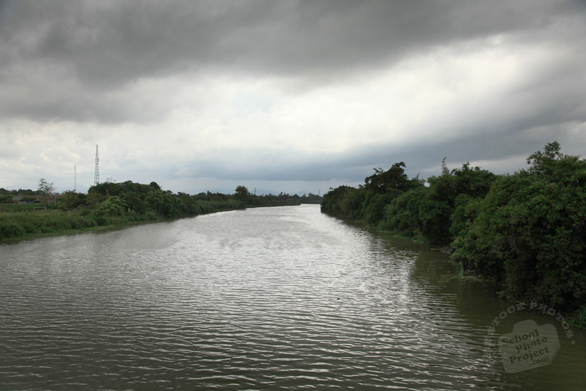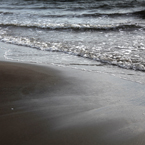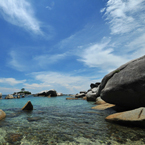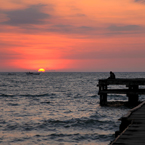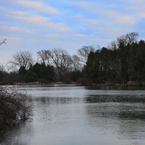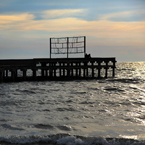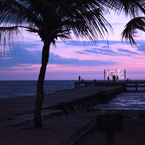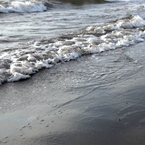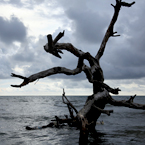River
A river is a natural watercourse,
usually freshwater, flowing towards an ocean, a
lake, a sea, or another river. In a few cases, a
river simply flows into the ground or dries up completely
before reaching another body of water. Small rivers
may also be called by several other names, including
stream, creek, brook, rivulet, tributary and rill.
There is no general rule that defines what can be
called a river, although in some countries or communities
a stream may be defined by its size. Many names
for small rivers are specific to geographic location;
one example is "burn" in Scotland and
northeast England. Sometimes a river is said to
be larger than a creek, but this is not always the
case, because of vagueness in the language.
Rivers are part of the hydrological cycle. Water
within a river is generally collected from precipitation
through a drainage basin from surface runoff and
other sources such as groundwater recharge, springs,
and the release of stored water in natural ice and
snowpacks (e.g., from glaciers). Potamology is the
scientific study of rivers.
The water in a river is usually confined to a channel,
made up of a stream bed between banks. In larger
rivers there is also a wider floodplain shaped by
flood-waters over-topping the channel. Flood plains
may be very wide in relation to the size of the
river channel. This distinction between river channel
and floodplain can be blurred especially in urban
areas where the floodplain of a river channel can
become greatly developed by housing and industry.
The term upriver refers to the direction leading
to the source of the river, which is against the
direction of flow. Likewise, the term downriver
describes the direction towards the mouth of the
river, in which the current flows
(Source: Wikipedia.org)
|






